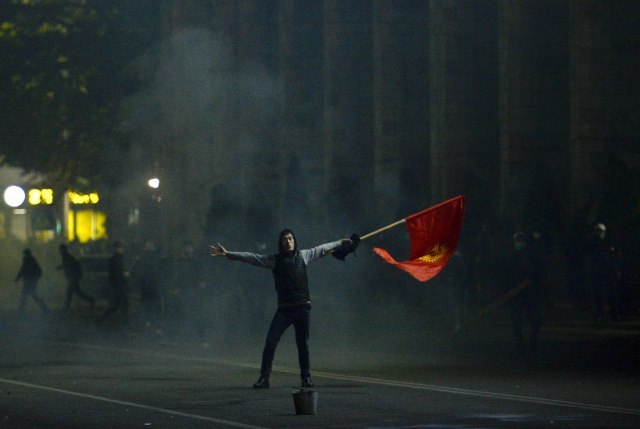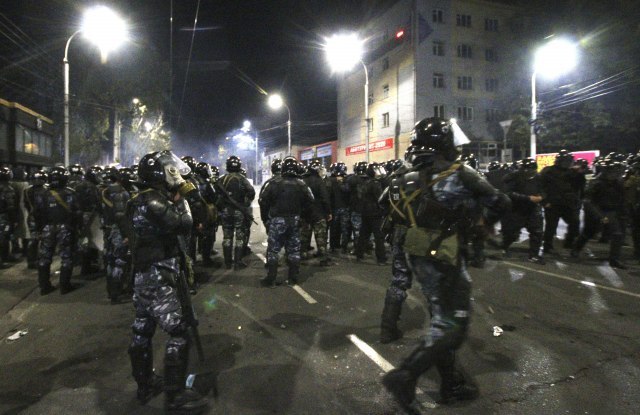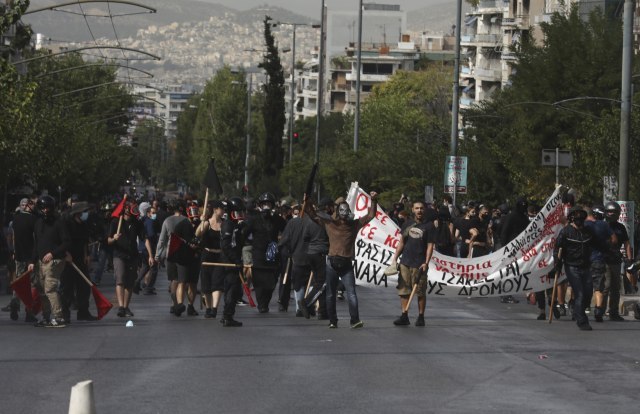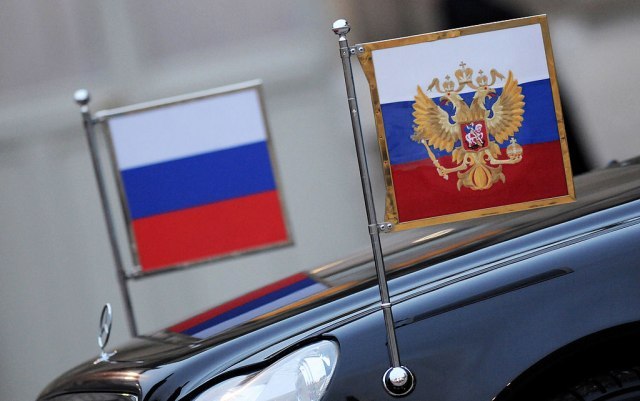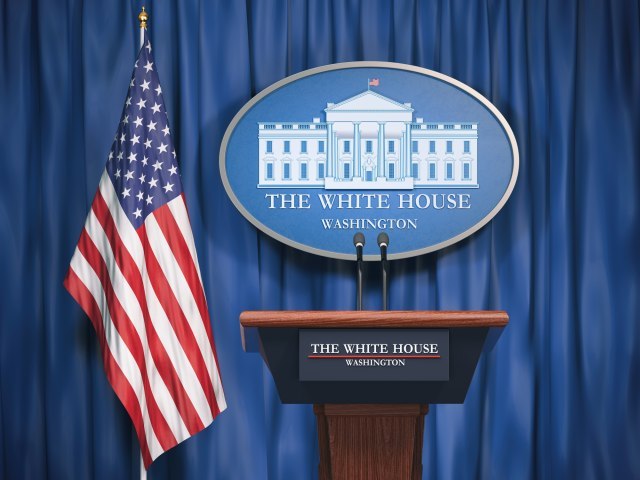House Democrats on Tuesday released a major report calling on Congress to overhaul U.S. antitrust law and take action to curtail the power of tech titans Amazon, Apple, Facebook, and Google.
The House Judiciary Subcommittee on Antitrust spent 16 months investigating Big Tech, resulting in a 450-page report (pdf) that found the four tech companies wield abusive monopoly power and suggesting that lawmakers take steps to break them up.
"A company like Amazon needs to be treated like Standard Oil and be split into many pieces."
—Vahid Razavi, Ethics In Tech
The report details a litany of anti-competitive practices that have become business as usual for "companies that once were scrappy, underdog startups that challenged the status quo" but which have now "become the kinds of monopolies we last saw in the era of oil barons and railroad tycoons."
"Each platform now serves as a gatekeeper over a key channel of distribution," the investigation found. "By controlling access to markets, these giants can pick winners and losers throughout our economy."
According to the report, the "monopoly power" of the four tech giants has "diminished consumer choice, eroded innovation and entrepreneurship in the U.S. economy, weakened the vibrancy of the free and diverse press, and undermined Americans' privacy."
The committee found that the companies, whose operations span multiple industries, use their dominance in one area of their business to undercut the competition in other areas.
Google's Android operation system, for example, gives it and its parent company Alphabet "near-perfect intelligence" on competiting companies that develop apps for Android. This allows Google to easily create its own apps to unfairly undercut the competition.
The committee concluded that Google fosters an "ecosystem of interlocking monopolies" perpetuated via two main anti-competitive practices.
First, the company aggressively works to "undermine... vertical search providers"—search engines for particular topics, like Expedia for travel or Dreamstime for photo sharing—in order to "boost Google's own inferior vertical offerings, while imposing penalties" on competitors.
Second, Google uses anti-competitive contracts, including ones that "required smartphone manufacturers to pre-install and give default status to Google's own apps."
The report found that Amazon—which accounts for nearly half of all U.S. e-commerce sales (that's more than seven times as much as second-place Walmart)—unfairly reaps data from its third-party sellers it then uses to boost its own business.
Amazon then uses this edge to favor its own brands over those of competitors, excludes competing products from its virtual shelves, and prioritizes its own products in online search results.
The lawmakers accuse Apple of exercising monopoly power through its control of software downloaded to iPhones—which account for nearly half of all U.S. mobile phones in use. While iPhone users can only download apps from Apple's store, the report found that the company unfairly favors its own apps, while charging outside app developers "exorbitantly high" fees.
"Apple leverages its control of iOS and the App Store to create and enforce barriers to competition and discriminate against and exclude rivals while preferencing its own offerings," the report states. "Apple also uses its power to exploit app developers through misappropriation of competitively sensitive information and to charge app developers supra-competitive prices within the App Store."
The committe reported that Facebook enjoys monopoly power in both the online advertising and social networking markets, and that the company uses a "copy, acquire, kill" strategy to destroy competition.
For example, the investigators found that Facebook's 2012 acquisition of Instagram was a brazen attempt to "neutralize a nascent competitive threat" that was followed by an intentional effort to thwart the upstart's success so it couldn't compete with its new parent company.
"These firms have too much power, and that power must be reined in and subject to appropriate oversight and enforcement."
—House Judiciary Antitrust Subcommittee
The report cites an Instagram whistleblower who testified before Congress that there was "brutal infighting" between Facebook and Instagram, and that CEO Mark Zuckerberg's efforts to slow Instagram's growth amounted to "collusion... within an internal monopoly." It also discusses the infamous 2018 Cunningham Memo, a blueprint for such internal monopolistic collusion.
The committee concludes that Congress should update antitrust laws to make it more difficut for companies to obtain approval for mergers and acquisitions. It also calls for the abolition of mandatory arbitration clauses in tech companies' terms of service agreements that prevent users from suing either individually or through class-action lawsuits.
"The totality of the evidence produced during this investigation demonstrates the pressing need for legislative action and reform," the report states. "These firms have too much power, and that power must be reined in and subject to appropriate oversight and enforcement."
While Amazon, Apple, Facebook, Google, and some Republican lawmakers have criticized the report, Democrats and digital rights advocates hailed its call for stronger antitrust protection and to break up Big Tech.
"Our investigation leaves no doubt that there is a clear and compelling need for Congress and the antitrust enforcement agencies to take action that restores competition, improves innovation, and safeguards our democracy," House Judiciary Committee Chairman Rep. Jerrold Nadler (D-N.Y.) and Antitrust Subcommittee Chairman Rep. David Cicilline (D-R.I.) said in a joint statement.
"By reasserting the power of Congress, we now have a thoroughly researched and reasoned roadmap for the work ahead as we rein in anti-competitive behavior, help prevent monopolistic practices, and allow innovation to thrive again," said Rep. Pramila Jayapal (D-Wash.). "I'm looking forward to continuing this urgent work."
In a Tuesday blog post, the digital rights group Electronic Frontier Foundation said that "many of the report's recommendations echo calls EFF has also made, proof of just how obviously effective, needed, and common-sense they are," adding that it is "pleased to see the report go beyond U.S. antitrust law's narrow focus on consumer prices."
"Overall, the Judiciary Committee report is a strong, evidence-based prescription for fixing antitrust law to help address the problems of Big Tech," said EFF. "We hope the conversation continues, with good changes to the law and increased enforcement yet to come."
Vahid Razavi, a former Amazon Web Services manager and founder of the nonprofit advocacy group Ethics In Tech, applauded the report and said it was nice to hear more lawmakers concur with his long-held assertion that the biggest tech companies are monopolies.
"Big Tech must be broken up," Razavi told Common Dreams. "A company like Amazon needs to be treated like Standard Oil and be split into many pieces. Amazon Web Services is a monopoly by itself. AWS competes with many of its customers and partners today."
"Every partner that I previously managed on behalf of AWS is now facing competing product offerings by Jeff Bezos and his team at AWS," he added of the Amazon CEO.
